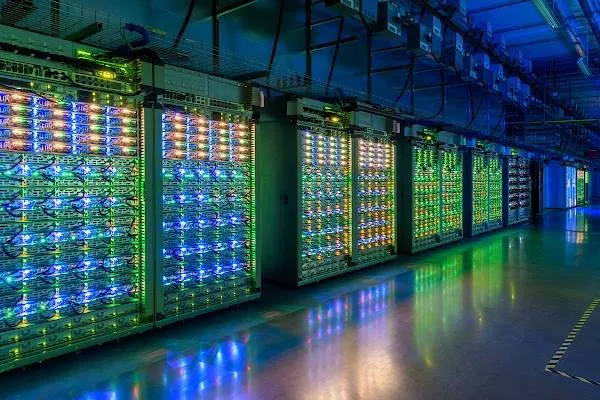Outrage grows over environmental cost of Google data center in Uruguay
Stockholm, August 4 (Hibya) - Google's plans to build a data centre in Uruguay have angered environmentalists who say the project will release thousands of tons of carbon dioxide and hazardous waste.
Uruguay's environmental authorities recently approved the data centre, which will use air conditioning to cool its servers.
The company had initially proposed using millions of litres of fresh water to cool its infrastructure. However, this caused a backlash in a country that suffered its worst drought since 1950 last year, causing its capital to run short of drinking water.
However, Daniel Pena, an academic and environmental advocate at the University of the Republic in Montevideo, said using air conditioning would be just as damaging to the environment.
According to the government's environmental assessment report, the data centre in Canelones in southern Uruguay is estimated to emit 25,000 tons of carbon dioxide annually and generate 86 tons of hazardous waste, including "electro-electronic residues", oils and chemical packaging.
It will provide internet services for Google's users around the world. But Pena said: "It will provide nothing but toxic waste and greenhouse gases for Uruguay." He added that the data centre would be in a tax-free zone and that the company would not pay taxes.
Environmentalists worry that the data centre will significantly impact Uruguay's carbon footprint. According to Pena's calculations, based on official figures, the country's carbon dioxide emissions from energy production will increase by 2.7%.
Uruguay's carbon emissions are so low because it generates more than 90% of its electricity from renewable sources - one of the highest rates in the world. But in times of high electricity use or water shortages, like last year, the country relies on oil-based power plants.
María Selva Ortiz of Friends of the Earth in Uruguay said the data centre would put more pressure on the country's energy grid, forcing it to resort to fossil fuels more often. The environmental organization calculates that the data centre would require the same amount of energy as 222,898 households in a country with a population of just over 3 million.
"We think that foreign multinationals have come to exploit our natural resources without benefiting us," Selva Ortiz said.
Usa News Agency
















